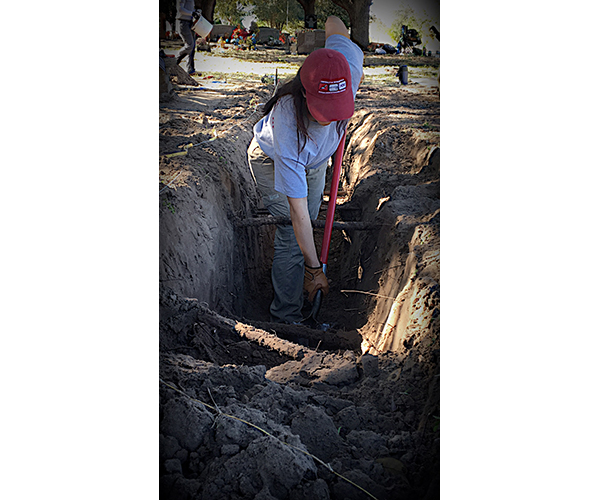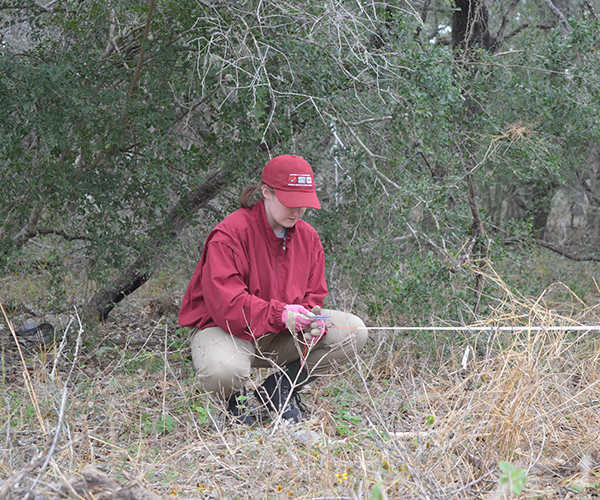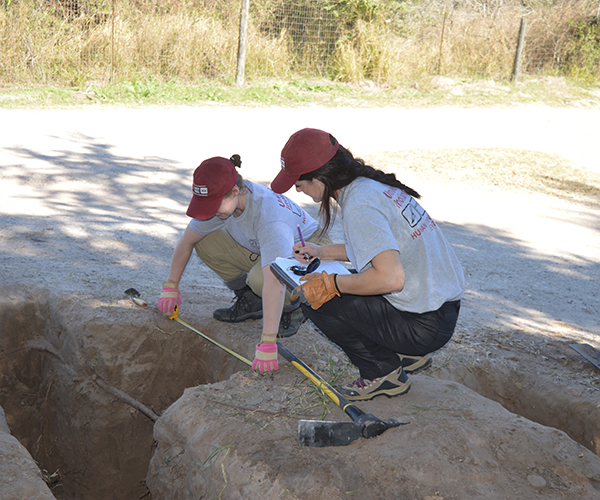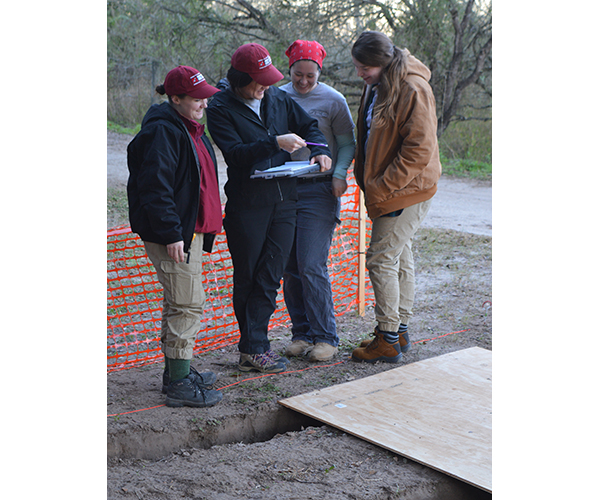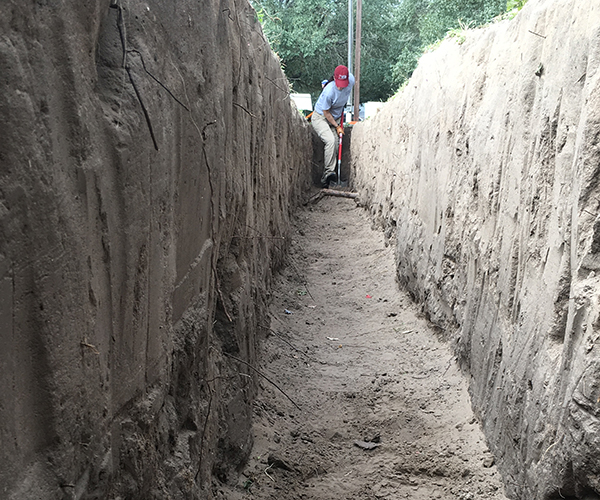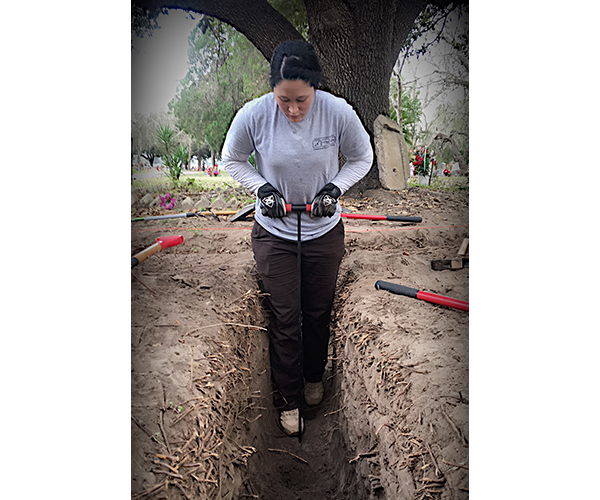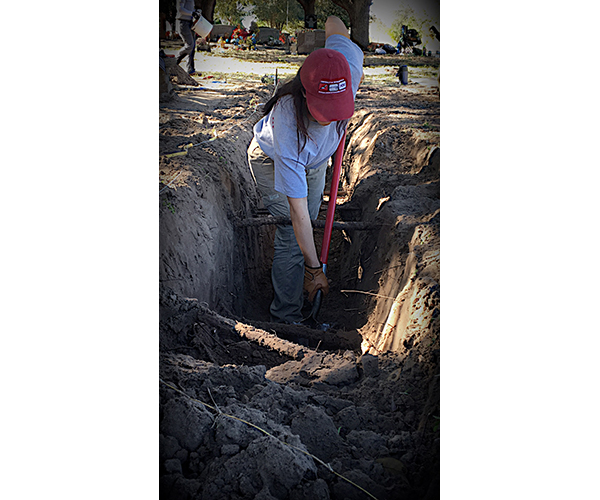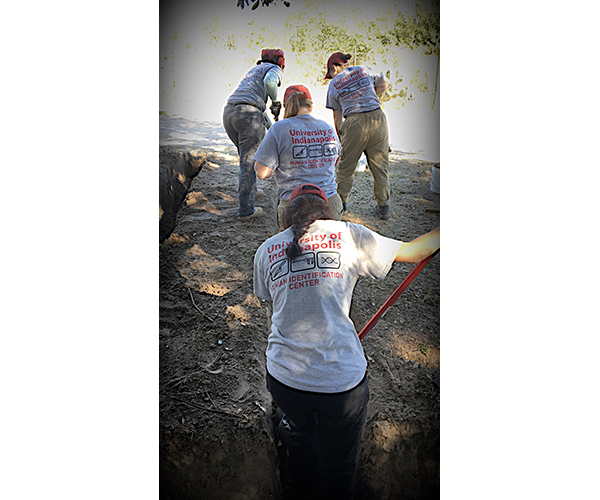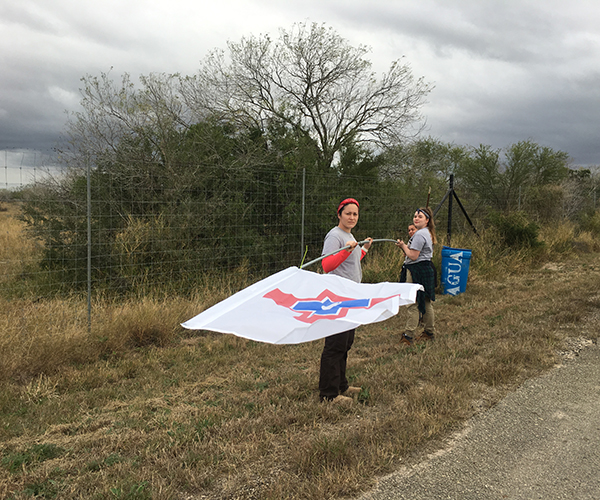UIndy Beyond Borders Team makes international impact

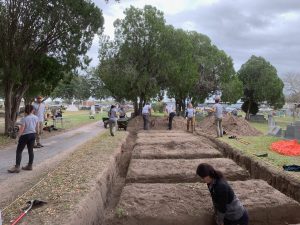 As the humanitarian crisis at the southern border of the United States dominates national headlines, the University of Indianapolis Beyond Borders Team highlights the impact on human lives. Since 2013, the team has participated in “Operation Identification” in Brooks County, Texas, assisting in the exhumation of hundreds of unidentified people who died while crossing the southern border of the United States and the identification of 30 of these individuals to date.
As the humanitarian crisis at the southern border of the United States dominates national headlines, the University of Indianapolis Beyond Borders Team highlights the impact on human lives. Since 2013, the team has participated in “Operation Identification” in Brooks County, Texas, assisting in the exhumation of hundreds of unidentified people who died while crossing the southern border of the United States and the identification of 30 of these individuals to date.
Krista Latham, director of the UIndy Human Identification Center and associate professor of biology, leads students on the Beyond Borders Team to southern Texas every year to exhume the remains of people who have been buried without identification and, in some cases, without any grave markers. The team participates in “Operation Identification” in partnership with anthropology faculty and students from Texas State University in San Marcos.
The Beyond Borders initiative allows University of Indianapolis students to expand their field work and forensic skills as they meet the urgent need in border communities to identify the dead and help loved ones achieve closure. Hundreds have died while making the treacherous southern border crossing, and the deaths have overwhelmed local law enforcement. According to the Missing Migrant project, nearly 400 deaths were reported along the U.S.-Mexico border in 2018.
In early January 2019, the Beyond Borders Team conducted several dig sites the Sacred Heart Burial Park in Falfurrias, Texas, which is one of the areas hardest hit by the humanitarian crisis.
Exhumed remains will be processed, analyzed and identified at Texas State University. Latham said the remains discovered in January were older burials, indicating that more burials might exist in small areas of the cemetery.
Latham explained that the Beyond Borders Humanitarian Science missions not only allow students to apply the forensic skills they’ve learned in the classroom to real-world situations, but also to better understand how their actions have far-reaching implications.
“Students are seeing how the process of exhumation and identification not only impacts the deceased and their immediate family, but how their actions can impact a community on a broader level,” Latham said.
“On this trip they are learning to apply a multitude of forensic archeological search techniques, and immersing themselves in different aspects of the humanitarian crisis at our southern border by interacting with local community members, Border Patrol and local law enforcement, individuals from various organizations that are a part of this large scale identification initiative as well as Latin American refugee families. These experiences are invaluable in their professional and personal development,” she added.
Students have been documenting their experiences on the Beyond Borders blog. Samantha Beck ’20 (human biology) described the team’s visit to the Humanitarian Respite Center, operated by the Catholic Charities of the Rio Grande Valley in McAllen, Texas, where students donated food items and toured the facility, which provides assistance to immigrants.
“Seeing the Respite Center in action showed me that the majority of the people crossing our borders have fled to our country because they think they will have the best chance at changing their fate. It was beautiful to see so many volunteers from the community that were there out of genuine care for the human lives around them, whether they were US citizens or not,” Beck said.
Arden Mower ’20 (human biology) wrote about meeting volunteers from the South Texas Human Rights Center, which hosts the Missing Migrant Hotline to provide support to families whose loved ones have gone missing. She reflected on her time in Texas as “nothing short of a life-changing experience.”
“While we are gaining archaeological exhumation experience, we have also had opportunities to participate in search and recoveries work together as a team, and learn about a real humanitarian crisis that is occurring just south of our border,” Mower said. “We have met a lot of different people here in South Texas who are all doing their part to help people. It is an honor to apply the forensic skills which we have learned in our classes at UIndy to do our part for a cause which is so important.”

